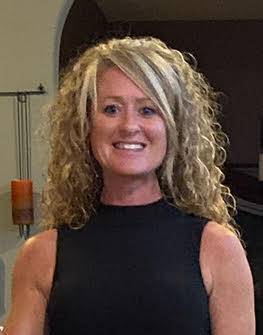For some people, CSA is their only path to hope

Community Support Advocates is celebrating 25 years of supporting individuals and families impacted by mental health or disabilities in Central Iowa. The nonprofit served 100 people during its first year in 1997 — and expects to serve more than 1,900 people this year.
A critical “first stop” organization that connects individuals and families to resources — such as employment, education, and community living — CSA’s impact has resonated throughout Polk, Jasper, Story, Dallas, and Warren counties.
To celebrate a quarter-century of service, CSA asked individuals to share their stories. Read more stories at teamcsa.org or follow #CSA25DSM on Facebook or Instagram.
Former CSA worker Rebecca Bingham worked for years in CSA’s case management and integrated services program.
How would you describe CSA?
CSA is an agency that is comprised of people that are highly committed to serving individuals who could benefit from individualized support.
Many CSA members have a wide range of disabilities that impact their daily life, including intellectual disabilities, developmental disabilities, brain injury, mental illness, and substance use.

Why is a partnership with CSA important?
A partnership with CSA is important because staff are highly committed to the success and growth of the individuals served.
They are committed to really getting to know the person, their history, and their needs in order to provide services that are individualized and person specific.
What does CSA mean to the community?
CSA can be the advocate you always needed, an ear to really listen, a voice to speak out, people that genuinely care and are dedicated to help achieve personalized goals and accomplishments.
CSA is a place that is well respected within the community and is known for partnering with individuals that range from a variety of needs that are met with respect, compassion, and personalized services.
In turn, this allows members to grow and prosper within their community and achieve a level of self-sufficiency that might not otherwise be possible.
It’s also a home away from home where team members value and respect one another.
Why is CSA’s work important?
CSA’s work is so incredibly important. They partner with individuals in a very specific and person-centered manner to allow for independence and growth within the community.
Without those supports, there are people who simply would go down another path, likely not the best one, due to lack of advocacy and connections to supports needed.
In the many years I was with CSA, I saw countless individuals who went from homeless to housing, from indulgence to sobriety, from isolation to inclusion, from no work history to holding down a job, from insecurity and self-doubt to confidence and self-worth.
I was proud of the staff I worked with but even more proud of the people I worked for.

What would happen if CSA did not do all that it does?
Without CSA, those who are in incredible need would be left without.
It would leave those who are in need of support and advocacy to fend for themselves and navigate a system that is often confusing and complicated.
Hospitalizations and homelessness would increase and self-sufficiency and personal growth would decrease.
Describe a moment when you saw the difference CSA makes.
I encountered people who walked through the door that literally had no one and nothing. They felt the world was against them and trust was low.
In time, through partnership with staff and meeting people where they were at, I saw a transformation that was beautiful and real.
Describe CSA in one word.
Everything. Because that is who they were to me and who I saw them be to the individuals served.

